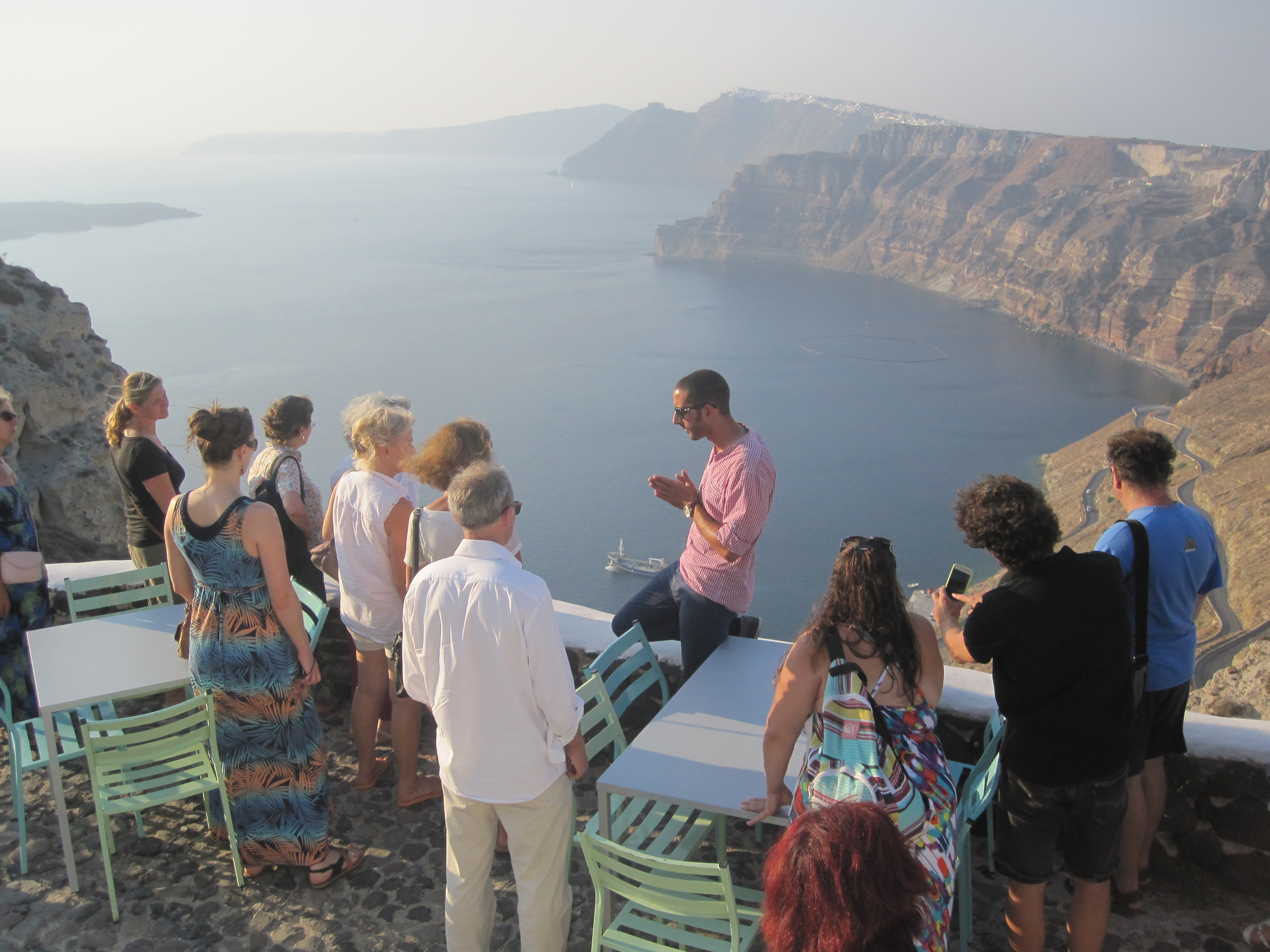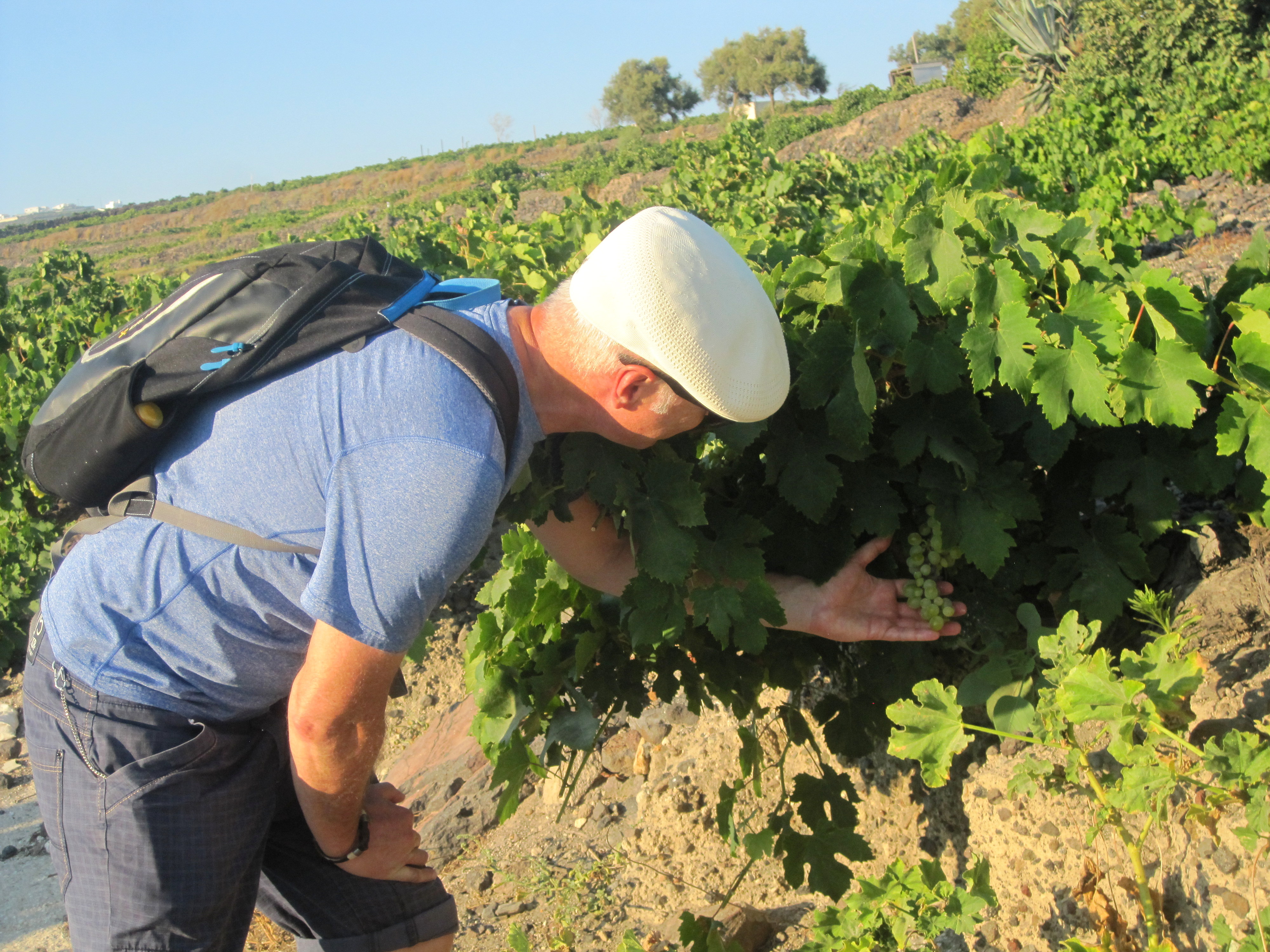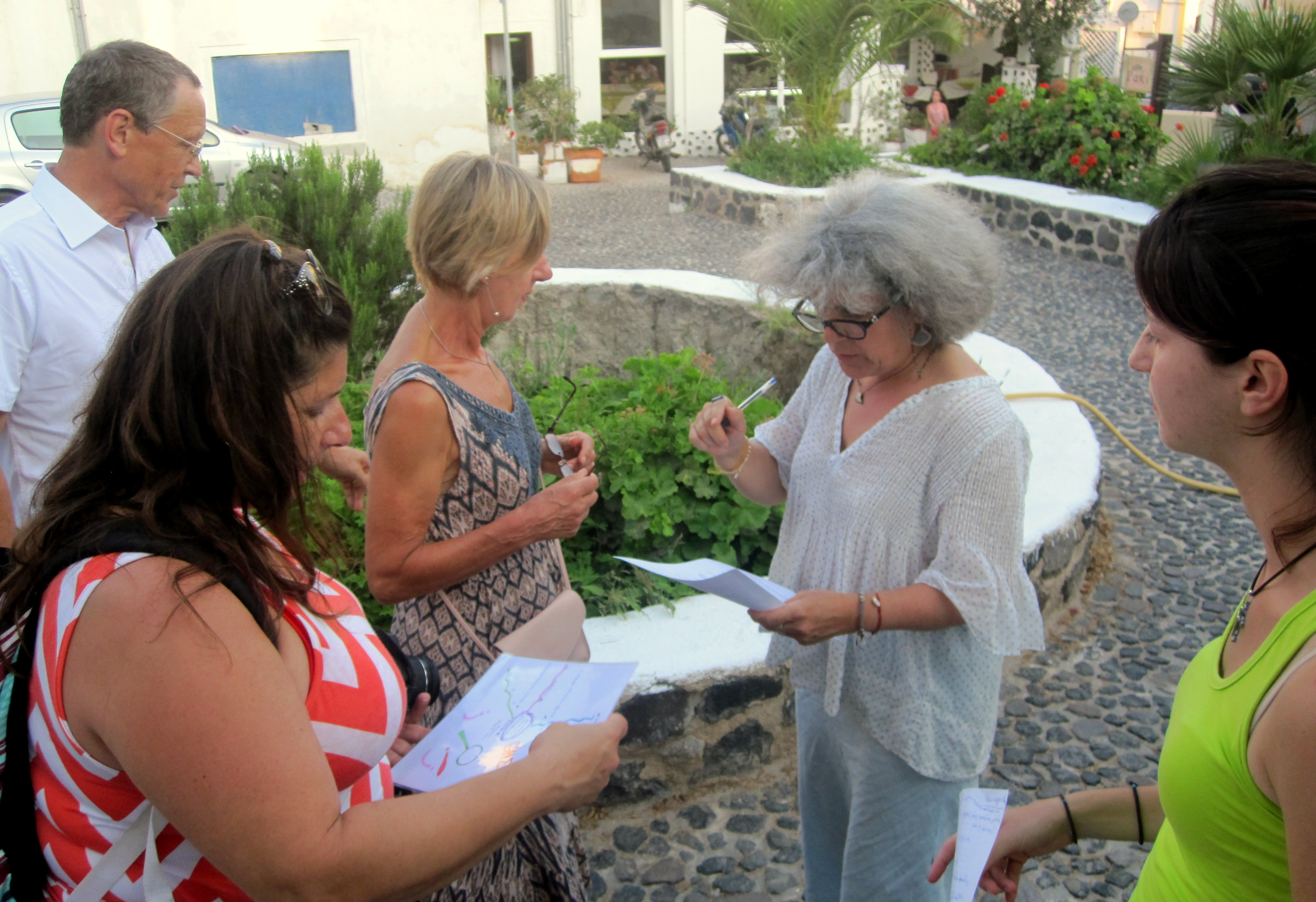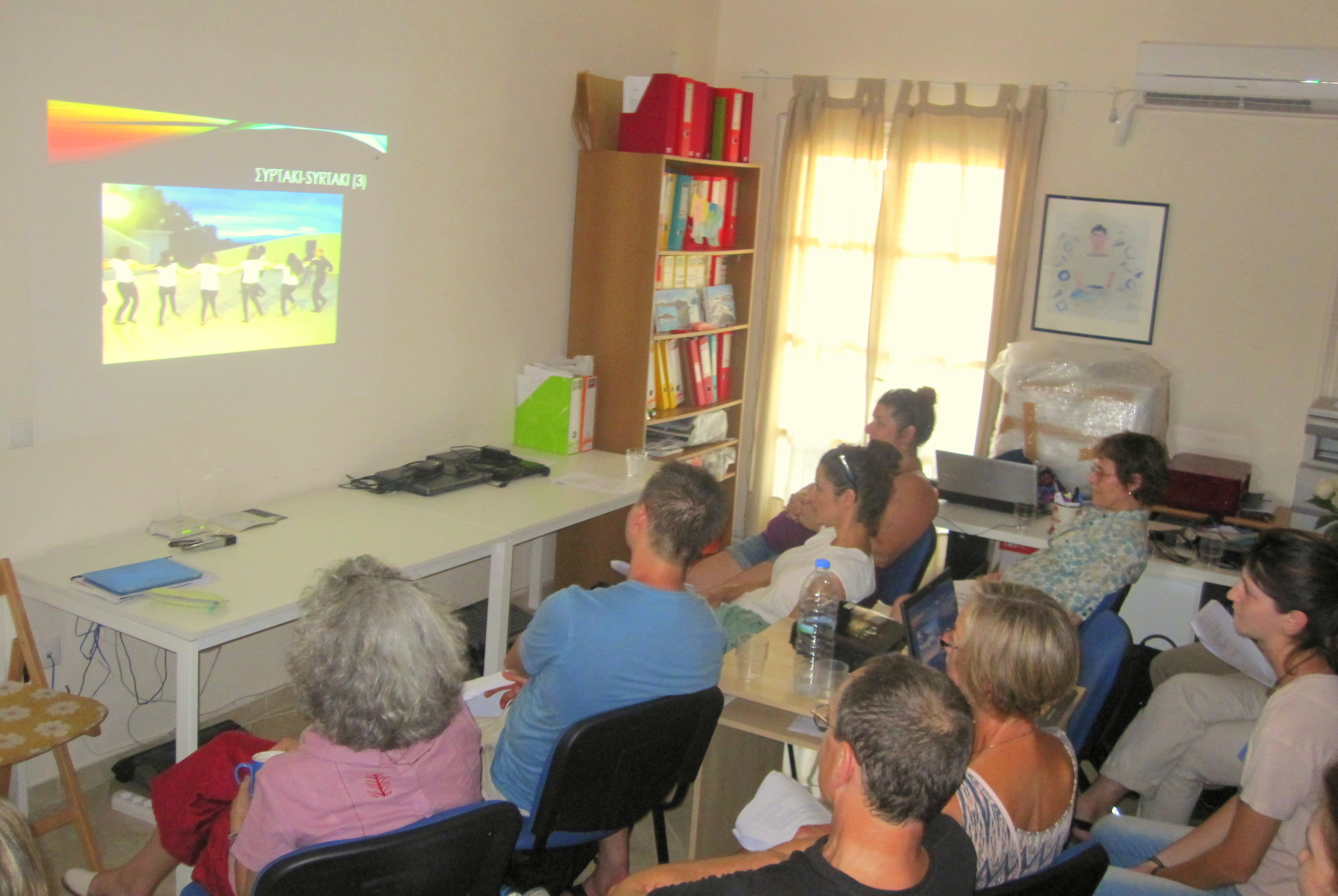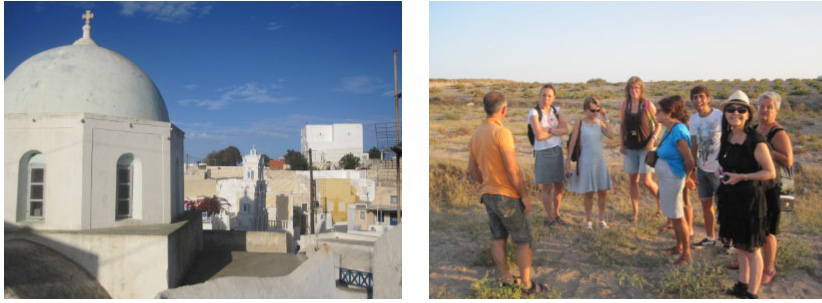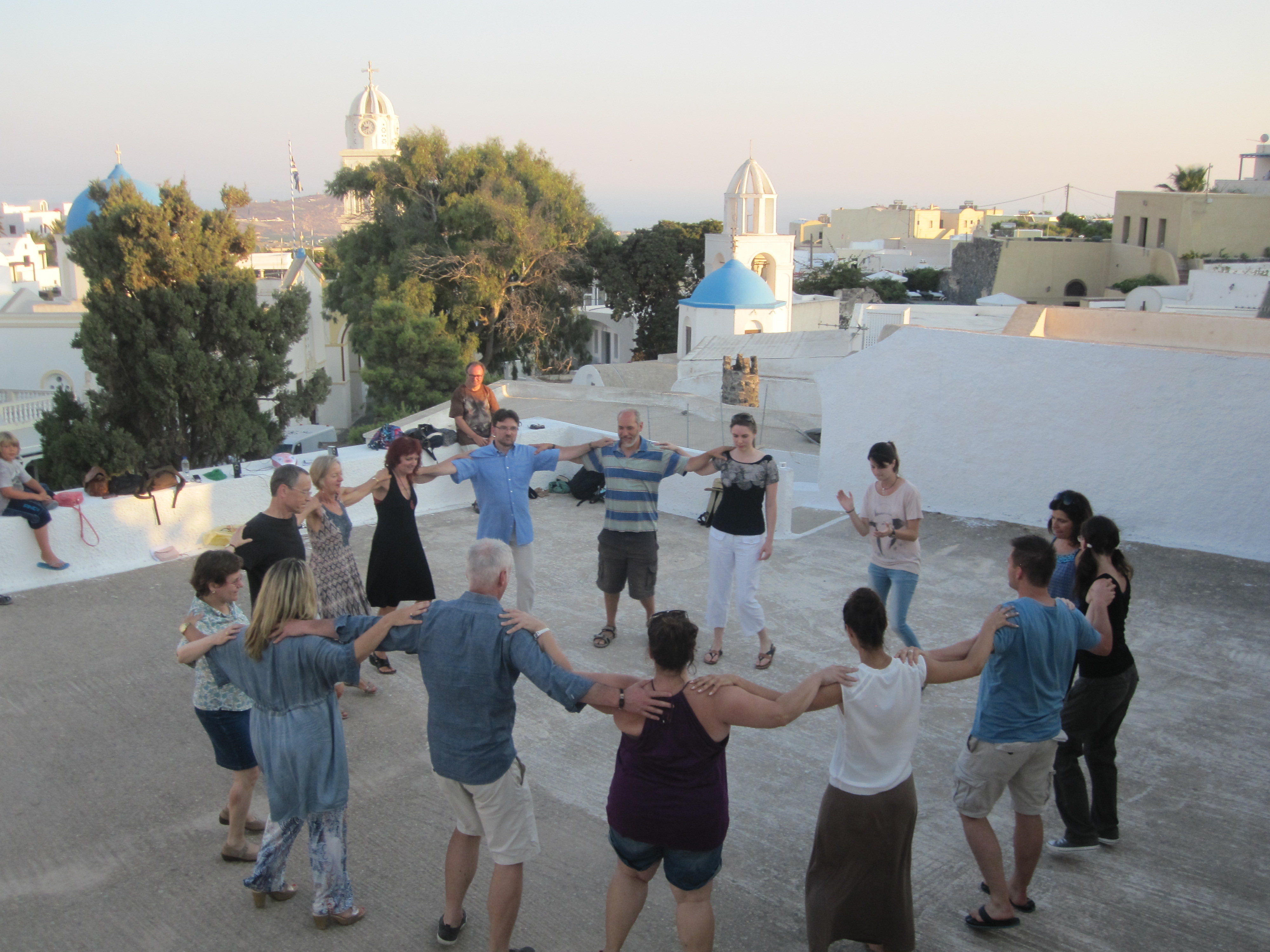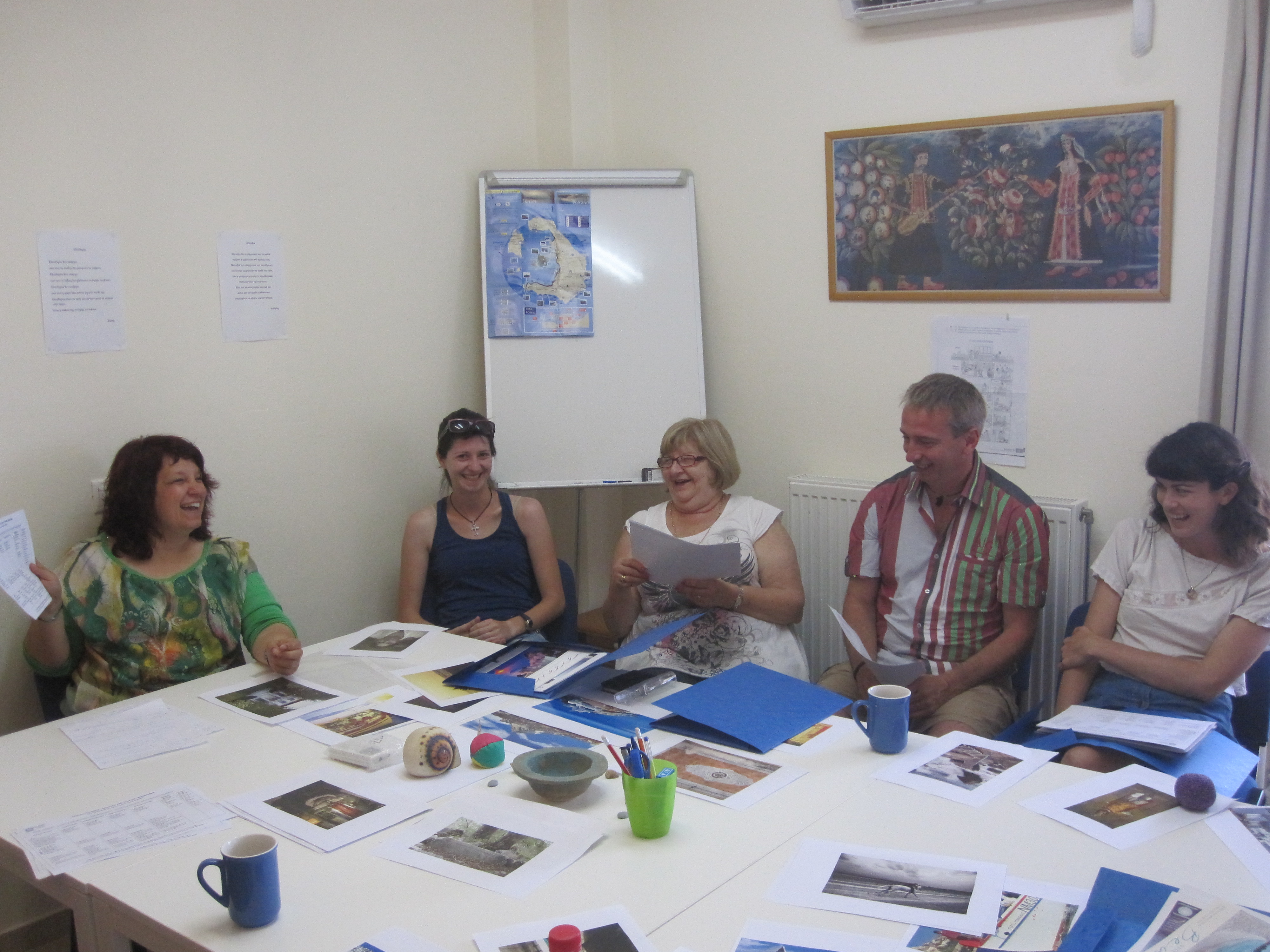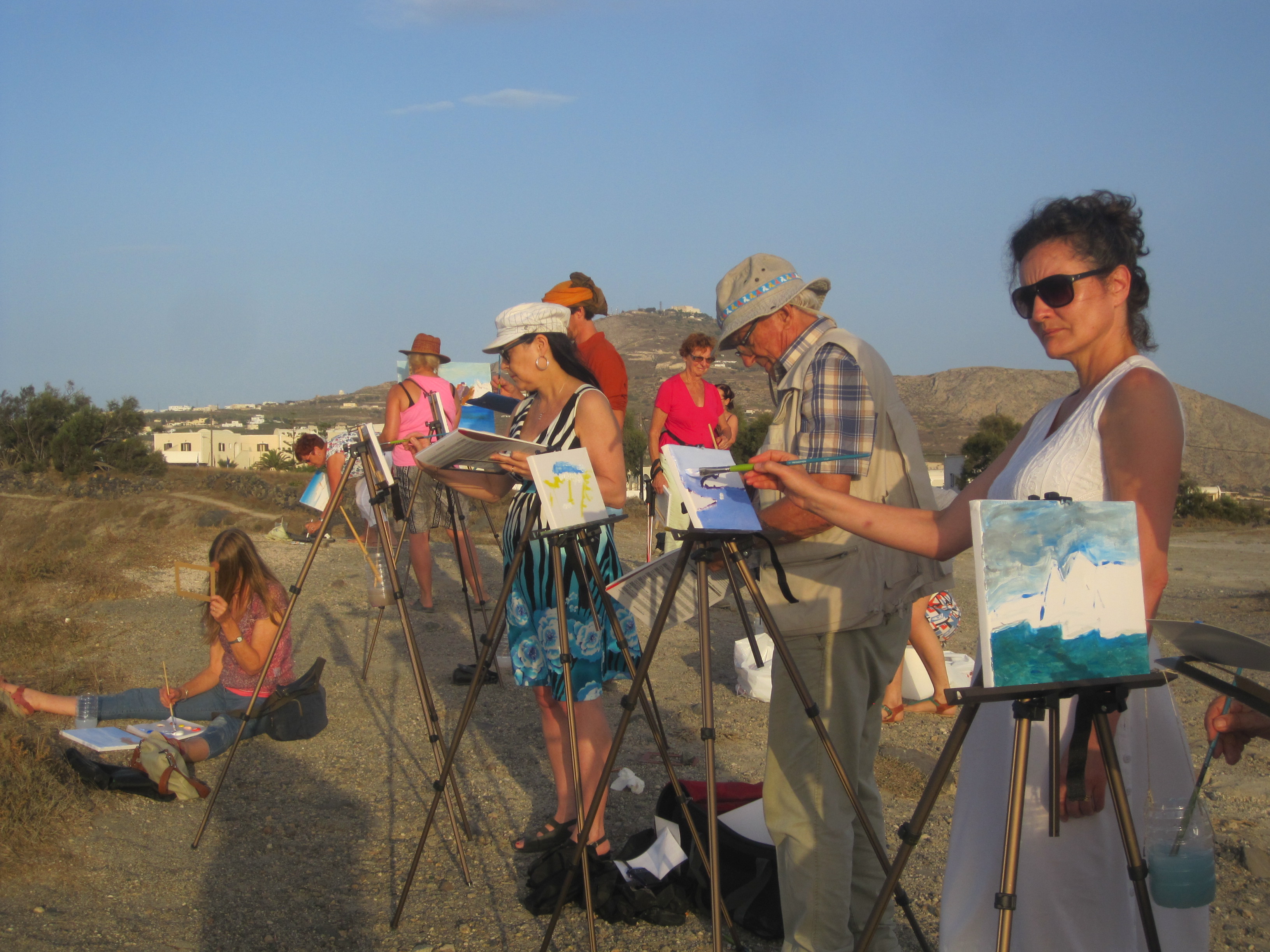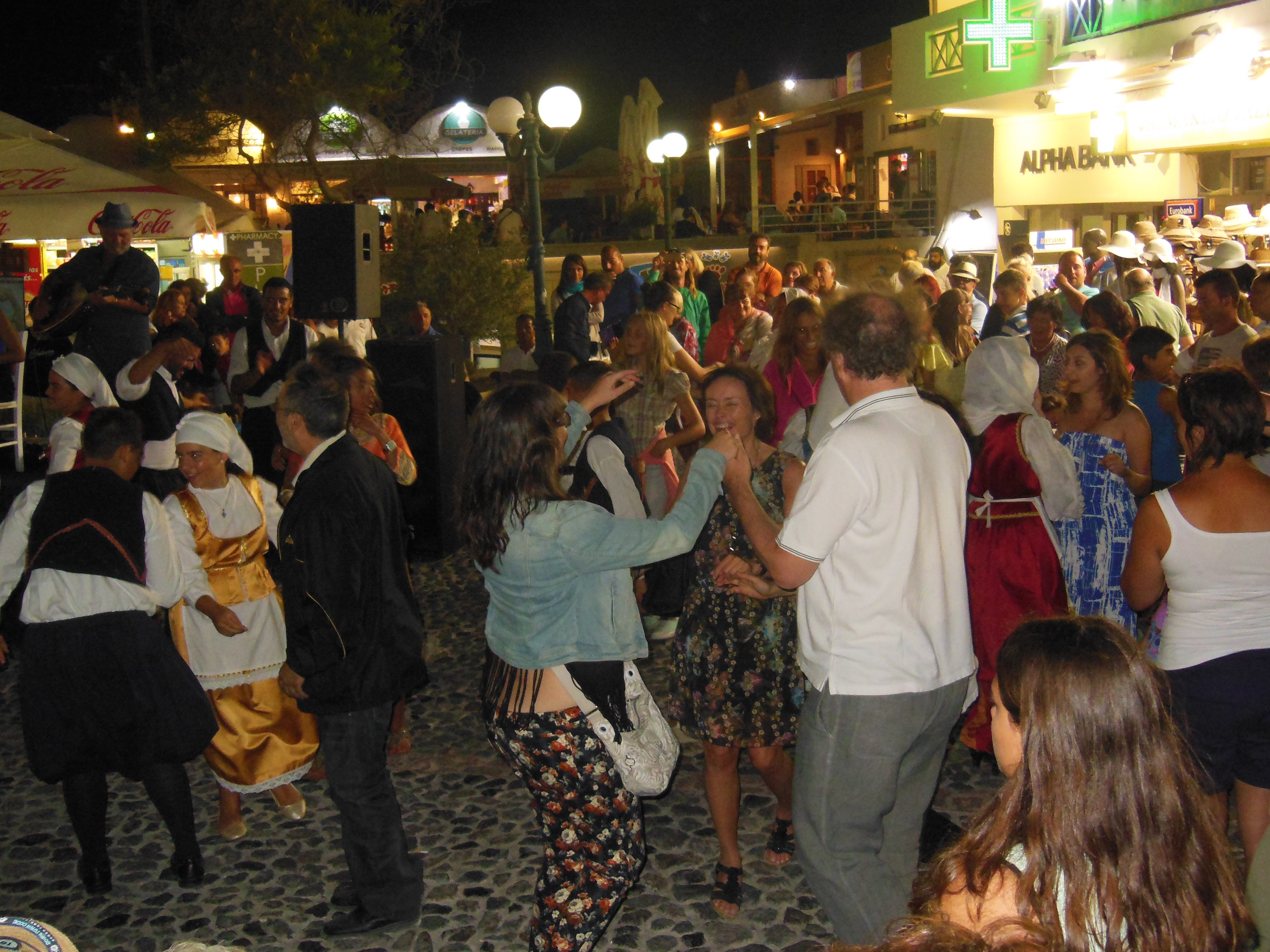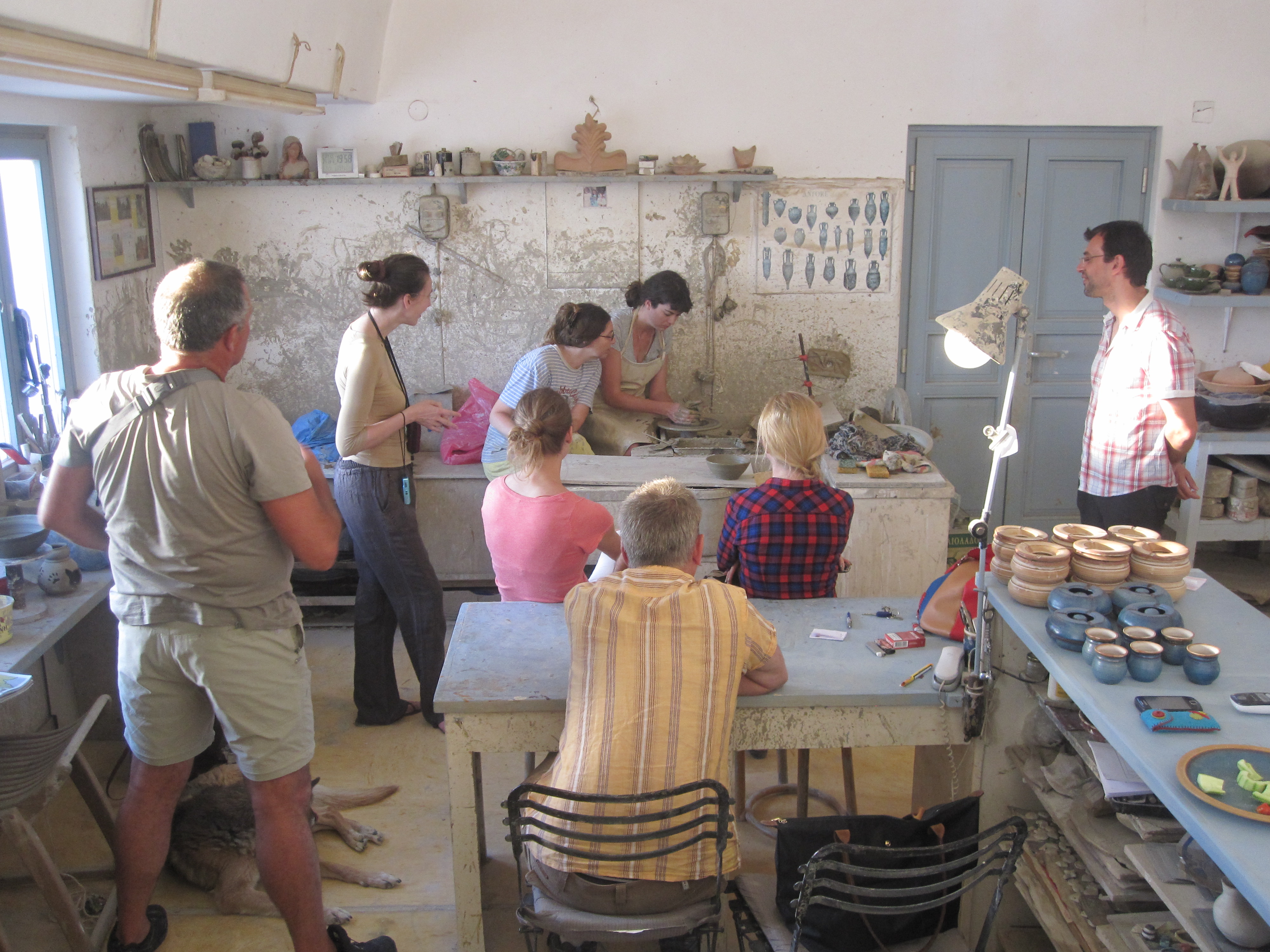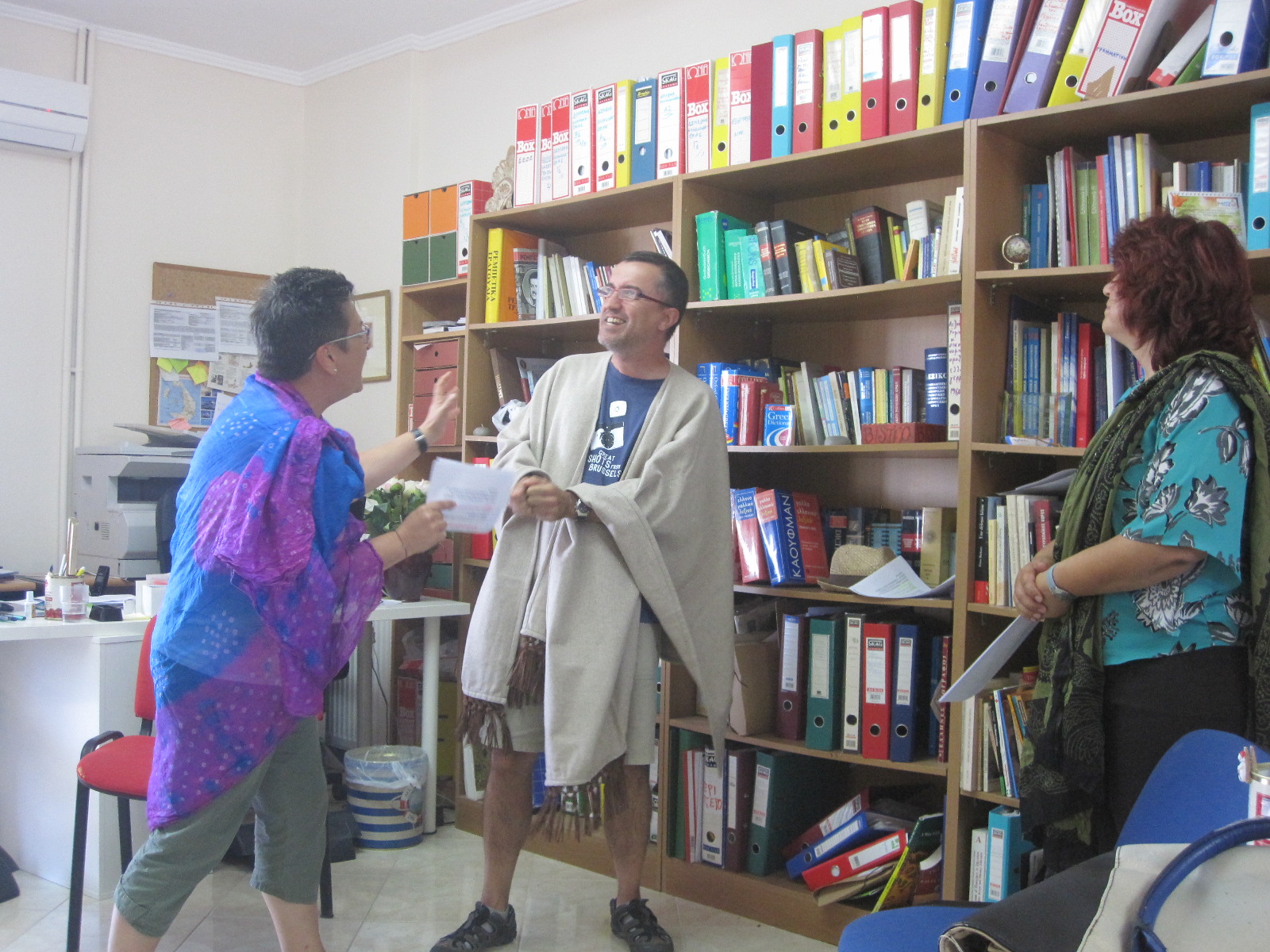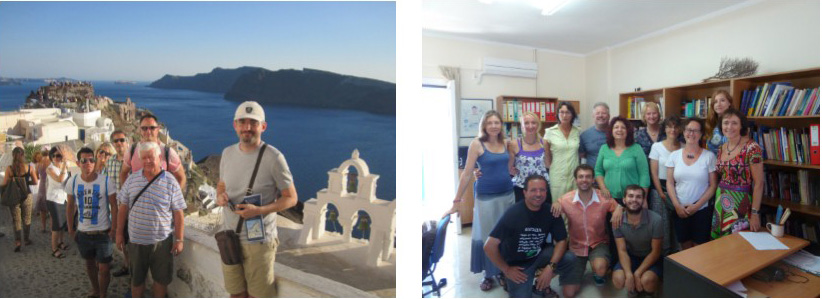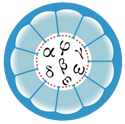Programmes
Teaching a foreign language today
Awarded by GINCO-Grundtvig International Network of Course Organizers (Best Practice for Quality Care in 2012)
The 3-day and the 5-day seminars start the same day and finish in different days (Day 3 and Day 5)
2020-2021:
5-day seminar:
23-27 October 2020, Athens
9-13 July 2021, Megalochori, Santorini
3-day seminar:
23-25 October 2020, Athens
9-11 July 2021, Megalochori, Santorini
Working language: Greek and English
SEMINAR PROGRAMME
Day 1 (Friday)
- Presentation of the participants and their organizations
- Presentation of the seminar’s programme and the trainers (educational contract)
- Locating the characteristics, the needs and the expectations of our learners
Day 2 (Saturday)
- The adults as learners
- Grading tests and curriculum planning
- Planning a lesson/ an educational meeting
Day 3 (Sunday)
- Teaching a text: Didactic techniques and techniques for assimilating the text
- Teaching vocabulary: Didactic techniques and techniques for assimilating the vocabulary
- The selection and evaluation of the textbook and the teaching materials
Day 4 (Monday)
- Visit to a Greek Language lesson for adults: Observation of the courses’ place, discussion with administration, trainers and students, observation of the lesson
Day 5 (Tuesday)
- Visit to a Greek Language lesson for adults: Observation of the courses’ place, discussion with administration, trainers and students, observation of the lesson
- Reports on the visit: Presentation of participants’ remarks, thoughts and conclusions
- Evaluation of the seminar - Goodbye activities - Creating a communication network
Fees
Tuition fee: 70 €/ day/ person, which includes tuition and training materials.
Organizational costs: 100 €/ person, which includes administration costs, organizational costs and VAT.
Special discounts for non Erasmus Plus grant holders.
Learning Outcomes
At the end of the seminar, participants are expected to have acquired the skills that will enable them to:
- locate and assess the needs and expectations of their language learners
- select the didactic techniques for organizing an efficient course
- adjust, produce, apply and evaluate the appropriate teaching materials
- cooperate with each other and exchange teaching experiences, ideas and materials
- become aware of their learners' cultural and educational background and to use their cultural specificities for the needs of the course
- cope with different practical problems in their classrooms, through the exchange of experiences and ideas with their colleagues
- guide other educators and organize activities related to the target language and culture.
Methodology
The course is based on the principles of participatory adult education, by embodying participants' experiences and fostering the exchange of their ideas, proposals and materials. Its focus is not merely on the didactic aspect of teaching but also on the participants' social and cultural knowledge gained through education and teaching to different target groups throughout Europe. During the course, the following techniques will be implemented: working in subgroups and pairs, role play, lectures, guided conversation, brainstorming, language and educational games and experiential activities.
The course also includes observation sessions in a Greek Language lesson for adults. During this, participants will have the opportunity to assess the teaching session of Greek in the specific context by applying the techniques of observation, interviewing and group discussion. After its completion, participants will share their learning experience.
Participants will also be given hand-outs, original materials, lists of intercultural activities and websites for teaching tools. Taking into consideration that the variety of educational tools and equipment offers to participants the opportunity to enrich their educational experience, within the course there will also be implemented the means of video, audio, objects (realia), diagrams, photos and games-activities.
Preparation
Participants will be given information on the subject of teaching languages today in Europe as well as lists for the most recent publications of didactic materials. Before the course, they will be asked to describe the institution they work for and the basic characteristics of their learners and their own professional background. it is also required to bring and present samples of the didactic material they use. Participants will also receive some information for the course group (trainers, organizers and organizing institution, other participants). Organizers will be responsible for sending all the necessary information regarding the venue and the trip. All the above will be communicated via e-mail and Drop Box.
Follow-up
Upon completion of the course, participants will be encouraged to form a network which will function as a meeting point. Within this network, they will be able to exchange didactic materials and proposals as well as useful ideas for promoting language learning in different European countries.
Programmes
Greek Language and Culture Programme
Location:
Megalochori,Santorini Island, Greece
Dates
2017:
10-21/4/2017
12-23/6/2017
26/6-7/7/2017
10-21/7/2017
24/7-4/8/2017
8-17/8/2017
4-15/9/2017
2018:
2-13/4/2018
11-22/6/2018
25/6-6/7/2018
9-20/7/2018
23/7-3/8/2018
3-14/9/2018
Working language: Greek and English (depending on the level)
SEMINAR PROGRAMME
Day 1 (Monday)
- Presentation of the participants and their organizations
- Presentation of the seminar’s programme and the trainers (educational contract)
- Greek Language Lesson
- Greek Language Workshop
Day 2 (Tuesday)
- Greek Language Lesson
- Greek Language Workshop
- Educational and Cultural Activities*
Day 3 (Wednesday)
- Greek Language Lesson
- Greek Language Workshop
Day 4 (Thursday)
- Greek Language Lesson
- Greek Language Workshop
Day 5 (Friday)
- Greek Language Lesson
- Greek Language Workshop
- Interim evaluation of the course
Day 6 (Saturday)
- Interactive Outdoor workshops: Thematic workshops up to 7 hours long on cultural topics
- Educational and Cultural Activities*
Day 7 (Sunday)
- Interactive Outdoor workshops: Thematic workshops up to 7 hours long on cultural topics
- Educational and Cultural Activities*
Day 8 (Monday)
- Greek Language Lesson
- Greek Language Workshop
Day 9 (Tuesday)
- Greek Language Lesson
- Greek Language Workshop
Day 10 (Wednesday)
- Greek Language Lesson
- Greek Language Workshop
Day 11 (Thursday)
- Greek Language Lesson
- Greek Language Workshop
- Educational and Cultural Activities*
Day 12 (Friday)
- Greek Language Lesson
- Greek Language Workshop
- Final Evaluation of the course - formation of the contact network
- Educational and Cultural Activities*
*Educational and Cultural Activities:
Some of the activities below may be included to your 2017-18 programme, in case you attend the two-week Integrated Greek Language and Culture Programme, at an extra cost:
1. Traditional Greek dance lesson and presentation of Greek dances/ Greek religious festivals
2. Singing Greek songs and presentation of Greek music
3. Visit to a local farmer and presentation of Santorini products
4. Ceramics lesson and presentation of ceramic art
5. Guided tour to a winery and wine tasting of three wines
6. Walking tour in Megalochori
7. Walking tours from Megalochori to Pyrgos or to Emporio
Fees
Tuition fee: 70 €/ day/ person, which includes tuition and training materials.
Organizational costs: 100 €/ person, which includes administration costs, organizational costs and VAT.
Special discounts for non Erasmus Plus grant holders.
Learning Outcomes
Depending on the Language Level they will follow, at the end of the seminar participants are expected:
A0 of the European Language Portfolio
Participants are expected to have developed all four language skills in Greek. More specifically, participants will have developed the basic vocabulary in Greek, they will be able to respond to basic communicational circumstances, and the will know the basic Greek grammar. They will cover material included in the level A1 (course A1a) of the European Language Portfolio. http://www.hcc.edu.gr/images/Syll_A0.pdf
A1 of the European Language Portfolio
Participants are expected to have developed all four language skills in Greek. More specifically, participants will have developed the basic vocabulary in Greek, they will be able to respond to basic communicational circumstances, and the will know the basic Greek grammar. They will cover material included in the level A1 (course A1b, A1c) of the European Language Portfolio. http://www.hcc.edu.gr/images/Syll_A1.pdf
A2 of the European Language Portfolio
Participants are expected to have developed all four language skills in Greek. More specifically, participants will have developed the ability to express themselves in more complex situations (descriptions, narrations, feelings, plans for the future). They will cover material included in the level A2 (course A2a, A2b, A2c) of the European Language Portfolio. http://www.hcc.edu.gr/images/Syll_A2.pdf
B1 of the European Language Portfolio
Participants are expected to have developed all four language skills in Greek. More specifically, participants will enrich their vocabulary in subjects like the family, work and free time, and they will learn the passive voice, participles, special (irregular) nouns and adjectives, the use of prepositions and conjunctions. They will cover material included in the level B1 (course B1a, B1b, B1c) of the European Language Portfolio. http://www.hcc.edu.gr/images/Syll_B1.pdf
B2 of the European Language Portfolio
Participants are expected to have developed all four language skills in Greek. More specifically, participants will complete their knowledge of the basic grammar (using cases, tenses, irregular adjectives and nouns, compound verbs, pronouns, imperative), and they will enrich their vocabulary (everyday language in big cities, idioms). They will cover material included in the level B2 (course B2a, B2b, B2c) of the European Language Portfolio. http://www.hcc.edu.gr/images/Syll_B2.pdf
C1 of the European Language Portfolio
Participants are expected to have developed all four language skills in Greek. More specifically, participants will enrich their vocabulary (official letters, essays, idioms, proverbs, special vocabulary, and they will study more complex language forms. They will cover material included in the level C1 (course C1a, C1b, C1c) of the European Language Portfolio. http://www.hcc.edu.gr/images/Syll_C1.pdf
C2 of the European Language Portfolio
Participants are expected to have developed all four language skills in Greek. More specifically, participants will enrich their vocabulary, they will study local idioms and elements of Katharevousa and ancient Greek language, they will be able to to express themselves in a clear and persuasive way and have an everyday/fast rhythm of speaking. They will cover material included in the level C2 (course C2a, C2b, C2c) of the European Language Portfolio. http://www.hcc.edu.gr/images/Syll_C2.pdf
Students of all levels are expected:
- To be familiar with many aspects of contemporary Greek culture (the Arts, history, society, nature)
- To have explored the contemporary Greek reality, as they will get in contact with local population
- To visit places of natural beauty and cultural significance
- To have exchanged intercultural experiences
Methodology
The course is based on the principles of participatory adult education. The method used is the communicative one, which brings out the communicative aspect of the language. Moreover, the course follows the principles of modern didactics of living languages, which gives emphasis to culture. During the course active learning and exchange of ideas and information about other cultures are encouraged, while the experienced of the participants are incorporated into the training. The abovementioned methodology is implemented via a daily schedule which includes language instruction, and language workshop, where participants have the opportunity to practice the language skills they have developed during the day through language games, role plays and other activities. They also better understand the cultural framework within which the linguistic types of Greek are developed and used.
A daily schedule of educational/ cultural activities can be incorporated into the programme, in order to enable participants to become familiar with elements of the traditional and contemporary Greek culture. These activities include Greek dances’ lessons, Greek cookery classes, visits to Museums and other places of cultural interest, excursions to Santorini Island and many more and have an extra cost. This programme of activities provides participants with a better understanding of contemporary Greeks and contemporary Greek culture.
Preparation
Participants will be given information on the subject of teaching or learning Greek today in Europe as well as lists for the most recent publications of didactic materials. Before the course, they will be asked to describe the institution they work for and the basic characteristics of its learners and their own professional background. Participants will also receive information for the course group (trainers, organizers and organizing institution, other participants). Organizers will be responsible for sending all necessary information regarding the venue and the trip. All the above will be communicated via e-mail.
Follow-up
Upon completion of the course, a network of Greek language’s and Greek culture’s friends will be formed though the HCC’s web-site and social media. The members of this network will be interested in improving their skills and Greek, and have positive feeling towards contemporary Greece. The network’s participants will be receiving information on the developments concerning learning Greek, on programmes and initiatives taken in Europe regarding this subject, as well as on critical developments in Greece which require action and initiative by the European citizens.
Programmes
Learning to teach Greek
The 3-day and the 5-day seminars start the same day and finish in different days (Day 3 and Day 5)
2020-2021:
5 - days seminar:
30 October- 03 November 2020, Athens
16-20 July 2021, Megalochori Santorini
3- days seminar:
30 October- 01 November 2020, Athens
16-18 July 2021, Megalochori Santorini
Working language: Greek
SEMINAR PROGRAMME
Day 1 (Friday)
- Presentation of the participants and their organizations
- Presentation of the seminar’s programme and the trainers (educational contract)
- Applying language games and communicative activities (part 1)
Day 2 (Saturday)
- Teaching the Grammar in various levels
- Teaching the Grammar in various levels (micro-teaching)
- Applying language games and communicative activities (part 2)
Day 3 (Sunday)
- The selection and application of audio-visual materials in the lesson
- The institutional framework of teaching Greek to foreigners and adult education
- Activating the students (homework, research, conversation classes) - Coping with practical problems in teaching
Day 4 (Monday)
- Visit to a Greek Language lesson for adults: Observation of the courses’ place, discussion with administration, trainers and students, observation of the lesson
Day 5 (Tuesday)
- Visit to a Greek Language lesson for adults: Observation of the courses’ place, discussion with administration, trainers and students, observation of the lesson
- Reports on the visit: Presentation of participants’ remarks, thoughts and conclusions
- Evaluation of the seminar - Goodbye activities - Creating a communication network
Fees
Tuition fee: 70 €/ day/ person, which includes tuition and training materials.
Organizational costs: 100 €/ person, which includes administration costs, organizational costs and VAT.
Special discounts for non Erasmus Plus grant holders.
Learning Outcomes
At the end of the seminar, participants are expected to have acquired the skills that will enable them to:
- select materials for teaching Grammar in different levels of students of Greek
- adjust, produce, apply and evaluate the appropriate audio-visual materials
- cooperate with each other and exchange teaching experiences, ideas and materials
- know the institutional framework of teaching Greek
- adapt the language games they use
- activate their students in and outside the class
Methodology
The course is based on the principles of participatory adult education, by embodying participants' experiences and fostering the exchange of their ideas, proposals and materials. Its focus is not merely on the didactic aspect of teaching adults but also on the participants' social and cultural knowledge gained through education, and teaching to different target groups throughout Europe. During the course, the following techniques will be implemented: working in subgroups and pairs, role play, lectures, guided conversation, brainstorming, language and educational games and experiential activities.
The course also includes observation sessions in a Greek Language lesson for adults. During this, participants will have the opportunity to assess the teaching session of Greek in the specific context by applying the techniques of observation, interviewing and group discussion. After its completion, participants will share their learning experience.
Participants will also be given hand-outs, original materials, lists of intercultural activities and websites for teaching tools and for promoting Greek language and culture. Taking into consideration that the variety of educational tools and equipment offers to participants the opportunity to enrich their educational experience, within the course there will also be implemented the means of video, audio, objects (realia), diagrams, photos and games-activities.
Preparation
Participants will be given information on the official examinations for the certificate of attainment in Greek and on the institutional framework of the non-formal education for non-Greek students. They will also receive articles on the subject of teaching Greek as a foreign language to adults as well as lists for the most recent publications of didactic materials. Before the course, they will be asked to describe the institution they work for and the basic characteristics of their learners and their own professional background. it is also required to bring and present samples of the didactic material they use. Participants will also receive some information for the course group (trainers, organizers and organizing institution, other participants). Organizers will be responsible for sending all the necessary information regarding the venue (Santorini, Athens) and the trip. All the above will be communicated via e-mail and post.
Follow-up
Upon completion of the course, participants will be encouraged to form a network which will function as a meeting point. Within this network, they will be able to exchange didactic materials and proposals as well as useful ideas for promoting language learning in different European countries.
Programmes
Teacher Training: Greek as a Foreign Language
The 3-day and the 5-day seminars start the same day and finish in different days (Day 3 and Day 5)
2021:
5 - day seminar:
19-23 March 2021, Athens
23 July -27 July 2021, Megalochori, Santorini Island
3-day seminar:
19-21 March 2021, Athens
23-25 July 2021, Megalochori, Santorini Island
Working language: Greek
SEMINAR PROGRAMME
Day 1 (Friday)
- Presentation of the participants and their organizations
- Presentation of the seminar’s programme and the trainers (educational contract)
- The ice breaking activities (part 1)
Day 2 (Saturday)
-The first day: the educational contract, the ice breaking activities (part 2)
- The function of the group: the roles of the students and the roles of the teacher
- Introducing a new thematic unit/ didactic subject
Day 3 (Sunday)
- The mixed ability class as a problem and as a challenge: Classrooms of mixed abilities, teaching techniques in mixed ability classes
- Teaching students of an advanced level in Greek: the characteristics of advanced students
- Cultural elements in the lesson: The selection and use of cultural materials, the utilization of intercultural elements, the production of new educational materials
Day 4 (Monday)
- Visit to a Greek Language lesson for adults: Observation of the courses’ place, discussion with administration, trainers and students, observation of the lesson
Day 5 (Tuesday)
- Visit to a Greek Language lesson for adults: Observation of the courses’ place, discussion with administration, trainers and students, observation of the lesson
- Reports on the visit: Presentation of participants’ remarks, thoughts and conclusions
- Evaluation of the seminar - Goodbye activities - Creating a communication network
Fees
Tuition fee: 70 €/ day/ person, which includes tuition and training materials.
Organizational costs: 100 €/ person, which includes administration costs, organizational costs and VAT.
Special discounts for non Erasmus Plus grant holders.
Learning Outcomes
At the end of the seminar, participants are expected to have acquired the skills that will enable them to:
- prepare and carefully select activities for group dynamics
- select didactic techniques for organizing an efficient course
- cope with mixed ability classes
- cooperate with each other and exchange teaching experiences, ideas and materials
- integrate in their courses different cultural materials
- cope with different practical problems in their classrooms, through the exchange of experiences and ideas with their colleagues
Methodology
The course is based on the principles of participatory adult education, by embodying participants' experiences and fostering the exchange of their ideas, proposals and materials. Its focus is not merely on the didactic aspect of teaching adults but also on the participants' social and cultural knowledge gained through education, and teaching to different target groups throughout Europe. During the course, the following techniques will be implemented: working in subgroups and pairs, role play, lectures, guided conversation, brainstorming, language and educational games and experiential activities.
The course also includes observation sessions in a Greek Language lesson for adults. During this, participants will have the opportunity to assess the teaching session of Greek in the specific context by applying the techniques of observation, interviewing and group discussion. After its completion, participants will share their learning experience.
Participants will also be given hand-outs, original materials, lists of intercultural activities and websites for teaching tools and for promoting Greek language and culture. Taking into consideration that the variety of educational tools and equipment offers to participants the opportunity to enrich their educational experience, within the course there will also be implemented the means of video, audio, objects (realia), diagrams, photos and games-activities.
Preparation
Participants will be given information on the official examinations for the certificate of attainment in Greek and on the institutional framework of the non-formal education for non-Greek students. They will also receive articles on the subject of teaching Greek as a foreign language to adults as well as lists for the most recent publications of didactic materials. Before the course, they will be asked to describe the institution they work for and the basic characteristics of their learners and their own professional background. it is also required to bring and present samples of the didactic material they use. Participants will also receive some information about the course group (trainers, organizers and organizing institution, other participants). Organizers will be responsible for sending all the necessary information regarding the venue and the trip. All the above will be communicated via e-mail and Drop Box.
Follow-up
Upon completion of the course, participants will be encouraged to form a network which will function as a meeting point. Within this network, they will be able to exchange didactic materials and proposals as well as useful ideas for promoting language learning in different European countries.


